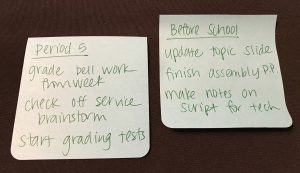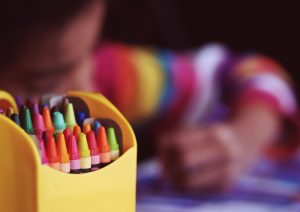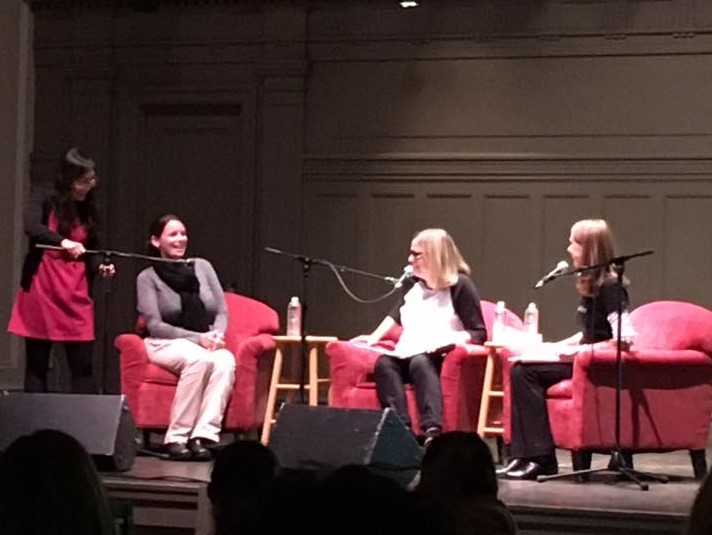A reoccurring topic on this blog will be productivity. I love talking about productivity, efficiency, organizing, and using technology to help with all three. It is a favorite topic of mine to read about or listen to podcasts on! Today’s productivity pro tip is to plan your planning periods. Planning your planning period means to literally sit down and make a plan for your time that is your own. This also can include time before or after school (when you are not in meetings…).
To consider how to plan your planning period, two suggestions:
1. Take time to think about what the most important tasks are for you to complete. Spending a couple minutes at the beginning of your day or planning period to focus on what is most important, can help you get more done in the end. Not only will this help you be productive, it will help you to prioritize and focus on what is most helpful and important. I make a list, separate from my to do list, of the 2-3 tasks that are most important for me to complete in my planning period.

two of my planning period priority lists from today
2. Group together like tasks. If you have a couple different times in the day that are open for you to work, group together tasks that make sense to go together. For example, if you have to grade a few homework assignments, grade them during the same planning period so you can get into a rhythm. If you need to deliver various paperwork to others in your building, gather it all together and deliver it to various offices all on the same trip around the building. Ultimately this can help you to get more time back in your day.
Your job is more than email
When we don’t plan out our planning time, we can get sucked into email. We may just want to decompress, so we open our computer not knowing what we will do and end up lost in email. We may not know exactly what tasks need to be done, so we refer to our inbox as a to do list. The issue is that often our inbox does not list out the most important tasks for us to complete. It has the tasks (sometimes important, sometimes not) other people are asking of us.
Rather than checking my email at the beginning of my planning period, I tend to check it in the last 5 minutes or so. This gives me enough time to respond to quick emails and to make notes on my to do list if there is something I need to return to.
Do you plan your planning period? How does this help you to be more intentional about how you spend your time?

 o seems to be off today.
o seems to be off today. My wise colleague, Julie, taught me this phrase. She always considers how she can start with a question, whether in conversations with students, colleagues, or parents. As Julie and I have discussed this idea over the years, we have come to recognize that starting with a question creates an inviting atmosphere and an opportunity for dialogue. I believe in this idea so much, it is the first line in my
My wise colleague, Julie, taught me this phrase. She always considers how she can start with a question, whether in conversations with students, colleagues, or parents. As Julie and I have discussed this idea over the years, we have come to recognize that starting with a question creates an inviting atmosphere and an opportunity for dialogue. I believe in this idea so much, it is the first line in my 

